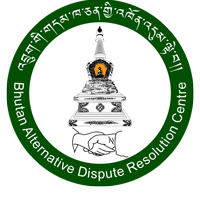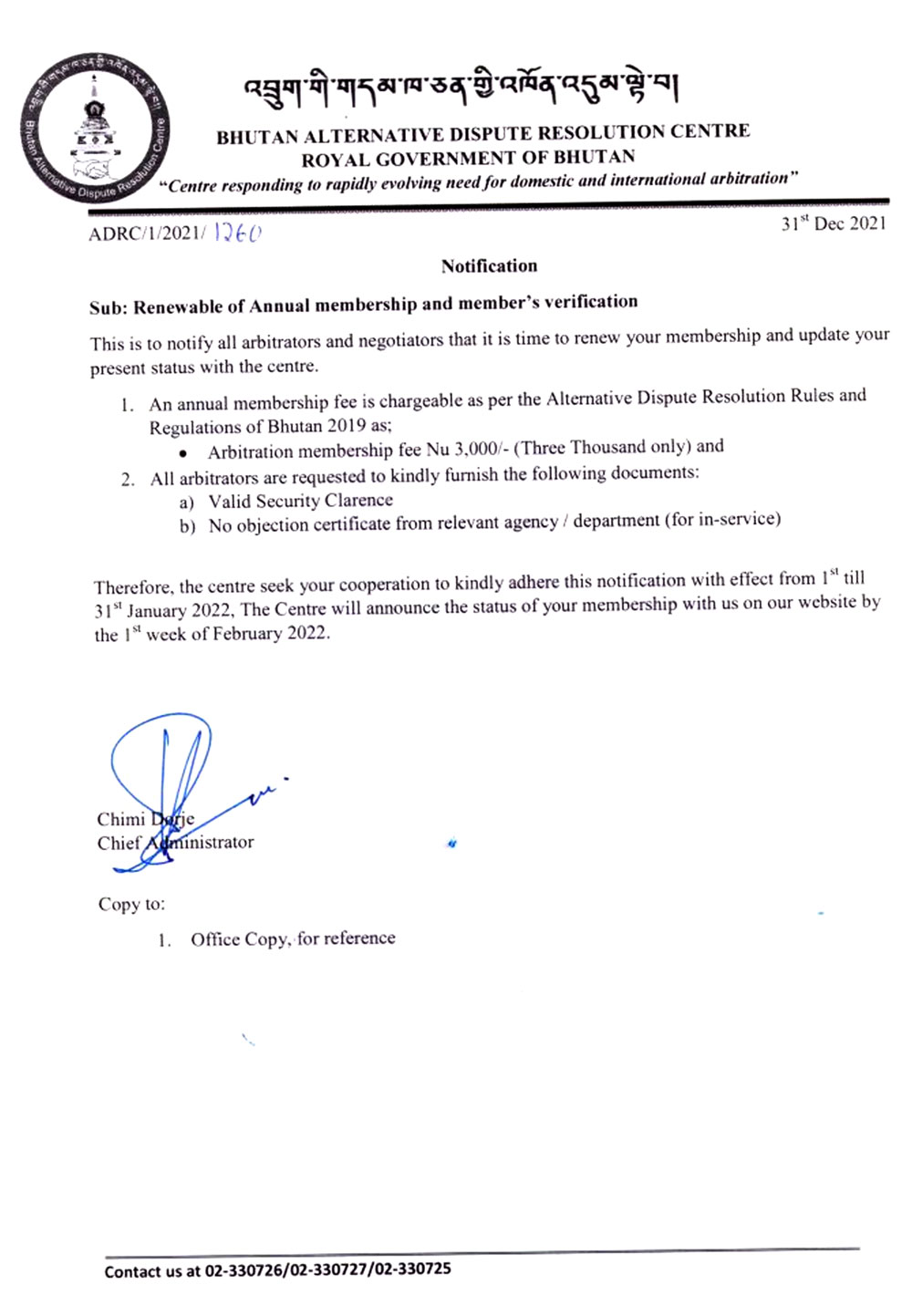Code of Conduct Mediation
1. SELF-DETERMINATION
1.1. A mediator shall conduct a mediation based on the principle of party self- determination. Self-determination is the act of coming to a voluntary, uncoerced decision in which each party makes free and informed choices as to process and outcome. Parties may exercise self-determination at any stage of a mediation, including mediator selection, process design, participation in or withdrawal from the process, and outcomes.
Although party self-determination for process design is a fundamental principle of mediation practice, a mediator may need to balance such party self-determination with a mediator’s duty to conduct a quality process in accordance with these Standards.
A mediator cannot personally ensure that each party has made free and informed choices to reach particular decisions, but, where appropriate, a mediator should make the parties aware of the importance of consulting other professionals to help them make informed choices.
1.2. A mediator shall not undermine party self-determination by any party for reasons such as higher settlement rates, egos, increased fees, or outside pressures from court personnel, program administrators, provider organizations, the media or others.
2. IMPARTIALITY
2.1. A mediator shall decline a mediation if the mediator cannot conduct it in an impartial manner. Impartiality means freedom from favoritism, bias or prejudice.
2.2. A mediator shall conduct a mediation in an impartial manner and avoid conduct that gives the appearance of partiality.
A mediator should not act with partiality or prejudice based on any participant’s personal characteristics, background, values and beliefs, or performance at a mediation, or any other reason.
A mediator should neither give nor accept a gift, favor, loan or other item of value that raises a question as to the mediator’s actual or perceived impartiality.
2.3. If at any time a mediator is unable to conduct a mediation in an impartial manner, the mediator shall withdraw.
3. CONFLICTS OF INTEREST
3.1. A mediator shall avoid a conflict of interest or the appearance of a conflict of interest during and after a mediation. A conflict of interest can arise from involvement by a mediator with the subject matter of the dispute or from any relationship between a mediator and any mediation participant, whether past or present, personal or professional, that reasonably raises a question of a mediator’s impartiality.
3.2. A mediator shall make a reasonable inquiry to determine whether there are any facts that a reasonable individual would consider likely to create a potential or actual conflict of interest for a mediator. A mediator’s actions necessary to accomplish a reasonable inquiry into potential conflicts of interest may vary based on practice context.
3.3. A mediator shall disclose, as soon as practicable, all actual and potential conflicts of interest that are reasonably known to the mediator and could reasonably be seen as raising a question about the mediator’s impartiality. After disclosure, if all parties agree, the mediator may proceed with the mediation.
3.4. If a mediator learns any fact after accepting a mediation that raises a question with respect to that mediator’s service creating a potential or actual conflict of interest, the mediator shall disclose it as quickly as practicable. After disclosure, if all parties agree, the mediator may proceed with the mediation.
3.5. If a mediator’s conflict of interest might reasonably be viewed as undermining the integrity of the mediation, a mediator shall withdraw from or decline to proceed with the mediation regardless of the expressed desire or agreement of the parties to the contrary.
3.6. Subsequent to a mediation, a mediator shall not establish another relationship with any of the participants in any matter that would raise questions about the integrity of the mediation. When a mediator develops personal or professional relationships with parties, other individuals or organizations following a mediation in which they were involved, the mediator should consider factors such as time elapsed following the mediation, the nature of the relationships established, and services offered when determining whether the relationships might create a perceived or actual conflict of interest.
4. COMPETENCE
4.1. A mediator shall mediate only when the mediator has the necessary competence to satisfy the reasonable expectations of the parties.
Any person may be selected as a mediator, provided that the parties are satisfied with the mediator’s competence and qualifications. Training, experience in mediation, skills, cultural understandings and other qualities are often necessary for mediator competence. A person who offers to serve as a mediator creates the expectation that the person is competent to mediate effectively.
A mediator should attend educational programs and related activities to maintain and enhance the mediator’s knowledge and skills related to mediation.
A mediator should have available for the parties’ information relevant to the mediator’s training, education, experience and approach to conducting a mediation.
4.2. If a mediator, during the course of a mediation determines that the mediator cannot conduct the mediation competently, the mediator shall discuss that determination with the parties as soon as is practicable and take appropriate steps to address the situation, including, but not limited to, withdrawing or requesting appropriate assistance.
4.23. If a mediator’s ability to conduct a mediation is impaired by drugs, alcohol, medication or otherwise, the mediator shall not conduct the mediation.
5. CONFIDENTIALITY
5.1. A mediator shall maintain the confidentiality of all information obtained by the mediator in mediation, unless otherwise agreed to by the parties or required by applicable law.
If the parties to a mediation agree that the mediator may disclose information obtained during the mediation, the mediator may do so.
A mediator should not communicate to any non-participant information about how the parties acted in the mediation. A mediator may report, if required, whether parties appeared at a scheduled mediation and whether or not the parties reached a resolution.
If a mediator participates in teaching, research or evaluation of mediation, the mediator should protect the anonymity of the parties and abide by their reasonable expectations regarding confidentiality.
5.2. A mediator who meets with any persons in private session during a mediation shall not convey directly or indirectly to any other person, any information that was obtained during that private session without the consent of the disclosing person.
5.3. A mediator shall promote understanding among the parties of the extent to which the parties will maintain confidentiality of information they obtain in a mediation.
5.4. Depending on the circumstance of a mediation, the parties may have varying expectations regarding confidentiality that a mediator should address. The parties may make their own rules with respect to confidentiality, or the accepted practice of an individual mediator or institution may dictate a particular set of expectations.
6. APPOINTMENT
6.1. Before accepting an appointment, the Mediator must be satisfied that he/she has time available to ensure that the mediation can proceed in an expeditious manner.
7. QUALITY OF THE PROCESS
7.1. A mediator shall conduct a mediation in accordance with these Standards and in a manner that promotes diligence, timeliness, safety, presence of the appropriate participants, party participation, procedural fairness, party competency and mutual respect among all participants.
7.2. A mediator should agree to mediate only when the mediator is prepared to commit the attention essential to an effective mediation.
7.3. A mediator should only accept cases when the mediator can satisfy the reasonable expectation of the parties concerning the timing of a mediation.
7.4. The presence or absence of persons at a mediation depends on the agreement of the parties and the mediator. The parties and mediator may agree that others may be excluded from particular sessions or from all sessions.
7.5. A mediator should promote honesty and candor between and among all participants, and a mediator shall not knowingly misrepresent any material fact or circumstance in the course of a mediation.
7.6. The role of a mediator differs substantially from other professional roles. Mixing the role of a mediator and the role of another profession is problematic and thus, a mediator should distinguish between the roles. A mediator may provide information that the mediator is qualified by training or experience to provide, only if the mediator can do so consistent with these Standards.
7.7. A mediator shall not conduct a dispute resolution procedure other than mediation but label it mediation in an effort to gain the protection of rules, statutes, or other governing authorities pertaining to mediation.
7.8. A mediator may recommend, when appropriate, that parties consider resolving their dispute through arbitration, counseling, neutral evaluation or other processes.
7.9. A mediator shall not undertake an additional dispute resolution role in the same matter without the consent of the parties. Before providing such service, a mediator shall inform the parties of the implications of the change in process and obtain their consent to the change. A mediator who undertakes such role assumes different duties and responsibilities that may be governed by other standards.
7.10. If a mediation is being used to further criminal conduct, a mediator should take appropriate steps including, if necessary, postponing, withdrawing from or terminating the mediation.
7.11. If a party appears to have difficulty comprehending the process, issues, or settlement options, or difficulty participating in a mediation, the mediator should explore the circumstances and potential accommodations, modifications or adjustments that would make possible the party’s capacity to comprehend, participate and exercise self-determination.
7.12. If a mediator is made aware of domestic abuse or violence among the parties, the mediator shall take appropriate steps including, if necessary, postponing, withdrawing from or terminating the mediation.
7.13. If a mediator believes that participant conduct, including that of the mediator, jeopardizes conducting a mediation consistent with these Standards, a mediator shall take appropriate steps including, if necessary, postponing, withdrawing from or terminating the mediation.
8. FEES AND OTHER CHARGES
8.1. For mediation administered by Centre, fees shall be as per Centre’s schedule of fees.
8.2. For alternative method of determining the mediator’s fees pursuant to Rule 17.2, a mediator shall fully disclose and explain the basis of compensation, fees and charges to the participants. The participants must be provided sufficient information about fees at the outset to determine if they wish to retain the services of the mediator.
8.3. A mediator may not enter into a fee agreement that is contingent upon the outcome of the mediation process.
8.4. A mediator may not give or receive any commission, rebate, or similar remuneration for referring a person for mediation services.
9. ADVERTISING AND SOLICITATION
9.1. A mediator shall be truthful in advertising and solicitation for mediation.
9.2. A mediator shall make only accurate and truthful statements about any mediation process, its cost and benefits, the mediator’s role and qualifications. A mediator shall refrain from promising specific results.




